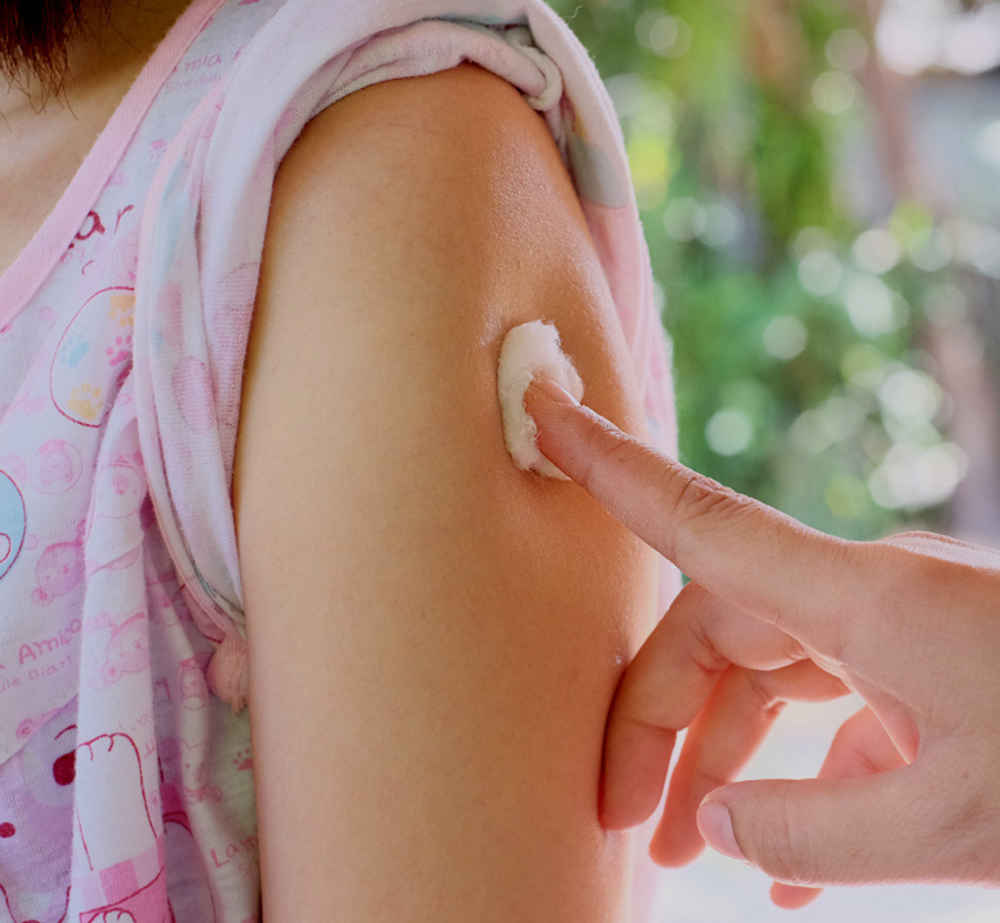410-721-2273
Infectious Mononucleosis
What is mononucleosis?
Mononucleosis (mono) is a viral infection.
The symptoms of mono may include:
- severe sore throat
- large red tonsils covered with pus
- swollen lymph nodes in the neck, armpits, and groin
- fever for 7 to 14 days
- tiredness and increased sleeping
- enlarged spleen (in 50% of children)
- blood smear showing many atypical (unusual) lymphocytes
- positive blood test for mononucleosis.
What is the cause?
Mononucleosis is caused by the Epstein-Barr virus (EBV). This virus is transmitted in infected saliva through coughing, sneezing, and kissing. Although mononucleosis can occur at any age, it occurs more often in 15- to 25-year-olds, possibly because of more intimate contacts with others. Contrary to popular belief, mono is not very contagious. Even people in the same household rarely come down with it. After the virus enters the body it can take 4 to 10 weeks before symptoms begin.
How long does it last?
Most children have only mild symptoms for a week. Even those with severe symptoms usually feel completely well in 2 to 4 weeks.
Complications are rare and require hospitalization when they occur. The most common complication is dehydration from not drinking enough fluids. Breathing may be obstructed by enlarged tonsils, adenoids, and other lymph tissue in the back of the throat. On rare occasions, the enlarged spleen will rupture if the abdomen is hit or strained. Because over 90% of youngsters with mononucleosis will develop a severe rash if they take ampicillin or amoxicillin, these medicines should be avoided in this condition.
How can I take care of my child?
Fever and pain medicines
No medicine will cure mononucleosis. Antibiotics are not helpful because it is caused by a virus. However, symptoms can usually be helped with medicines. The pain of swollen lymph nodes and fever over 102°F (39°C) can usually be relieved by appropriate doses of acetaminophen (Tylenol) or ibuprofen (Advil). Do not give aspirin.
Fluids
To prevent dehydration, be sure your child drinks enough fluids. Milk shakes and cold drinks are especially good. Children over 1 year old can sip warm chicken broth. Your child is getting enough fluid if:
- your child urinates at least 3 times each day
- the urine is not darker than usual
- the mouth is moist and has saliva in it
Sore throat treatment
Because swollen tonsils can make some foods hard to swallow, provide a soft diet as long as necessary. Children over age 4 can suck on hard candy (butterscotch seems to be a soothing flavor.) Your child should swallow his or her saliva. Avoid citrus fruits. Give your child a daily multiple vitamin until his appetite returns to normal. Acetaminophen or ibuprofen can be very helpful. Do not give aspirin.
Activity
Your child does not need to stay in bed. Bed rest will not shorten the course of the illness or reduce symptoms. Your child can select how much rest he or she needs. Usually children voluntarily slow down until they no longer have a fever. Children can return to school when the fever is gone and they can swallow normally. Most children will want to be back to full activity in 2 to 4 weeks.
Precautions for an enlarged spleen
Your child's spleen may be enlarged while he or she has mononucleosis. A blow to the abdomen could rupture the enlarged spleen and cause bleeding. This is a surgical emergency. Therefore, all children with mononucleosis should avoid contact sports for at least 4 weeks. Athletes especially must restrict their activity until the spleen returns to normal size (as determined by a physical exam).
Constipation and heavy lifting should also be avoided because of the sudden pressures they can put on the spleen.
Your healthcare provider will check your child weekly until the spleen size returns to normal.
Contagiousness
Infectious mononucleosis is most contagious while your child has a fever. After the fever is gone, the virus is still carried in the saliva for up to 6 months, but in small amounts. Overall, mononucleosis is only slightly contagious from contacts. Boyfriends, girlfriends, roommates, and relatives rarely get it. The person with mononucleosis does not need to be isolated. However, he or she should use separate drinking glasses and utensils and avoid kissing until the fever has been gone for several days.
The incubation period for mononucleosis is 4 to 10 weeks after contact with an infected person. This means that if a person does become infected with the virus, the symptoms will not appear until 4 to 10 weeks after the contact.
What is chronic fatigue syndrome?
The symptoms of chronic fatigue syndrome are fatigue, tiredness, weakness, recurrent pains, and the need for more sleep. The symptoms are present for at least 6 months.
Years ago, researchers suspected that chronic fatigue syndrome was linked to having had mono. But that connection has never been proven.
Call 911
Call our office immediately if:
(410) 721-2273
- Signs of dehydration occur.
- Breathing becomes difficult or noisy.
- Abdominal pain occurs (especially high on your child's left side).
- Your child starts acting very sick
Call us within 24 hours if:
- Your child can't drink enough fluids.
- Sinus or ear pain occurs.
- Your child isn't back to school by 2 weeks.
- Any symptoms remain after 4 weeks.
- You have other questions or concerns.
Written by B.D. Schmitt, MD, author of "Your Child's Health," Bantam Books.
This content is reviewed periodically and is subject to change as new health information becomes available. The information is intended to inform and educate and is not a replacement for medical evaluation, advice, diagnosis or treatment by a healthcare professional.
You May Also Like
Popular Resources | Make an Appointment • Locations • Refill Prescriptions





